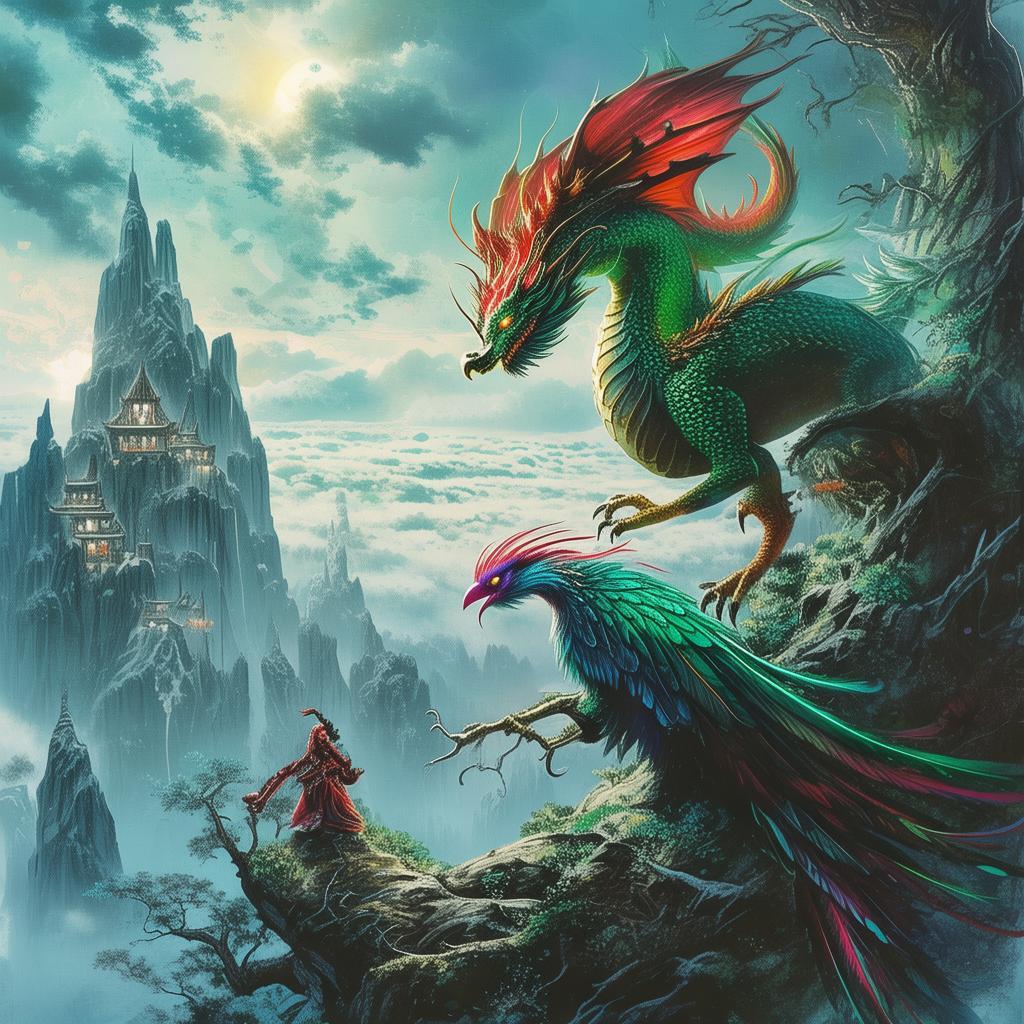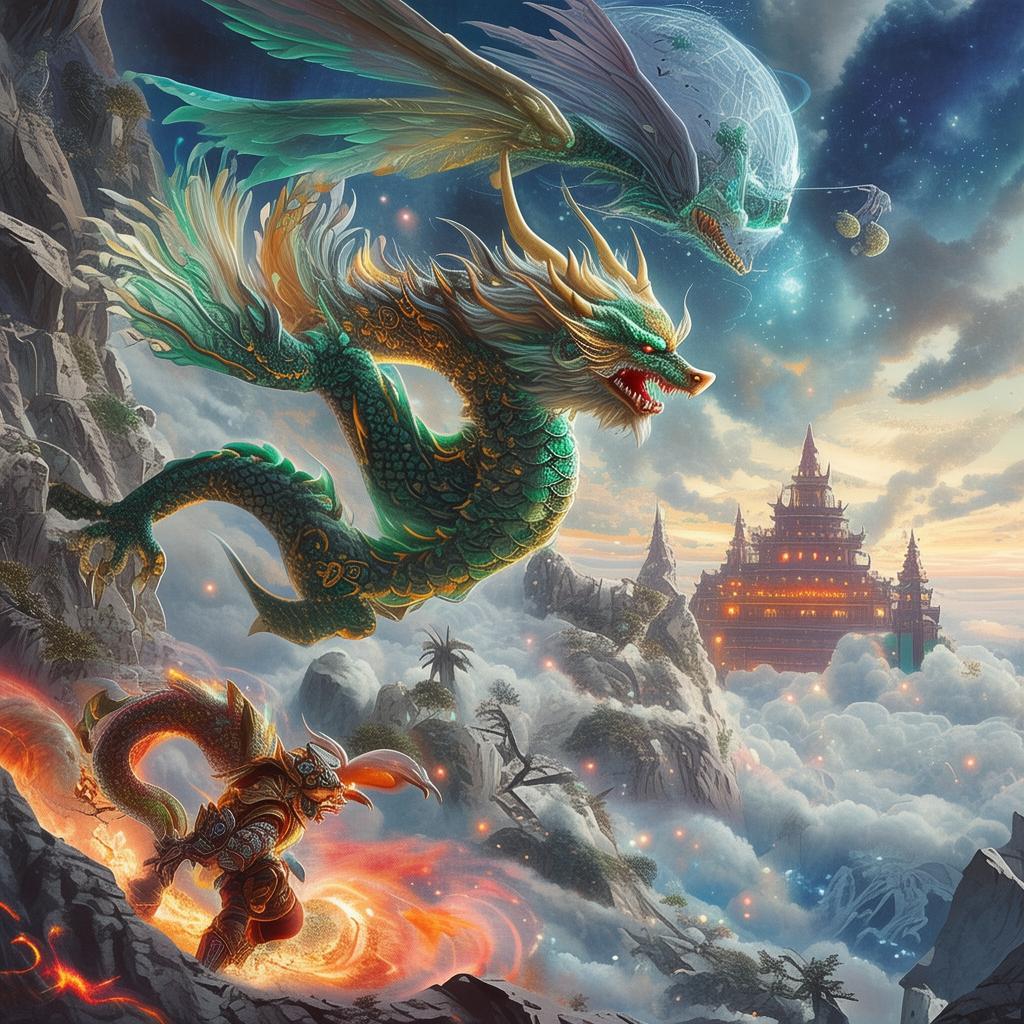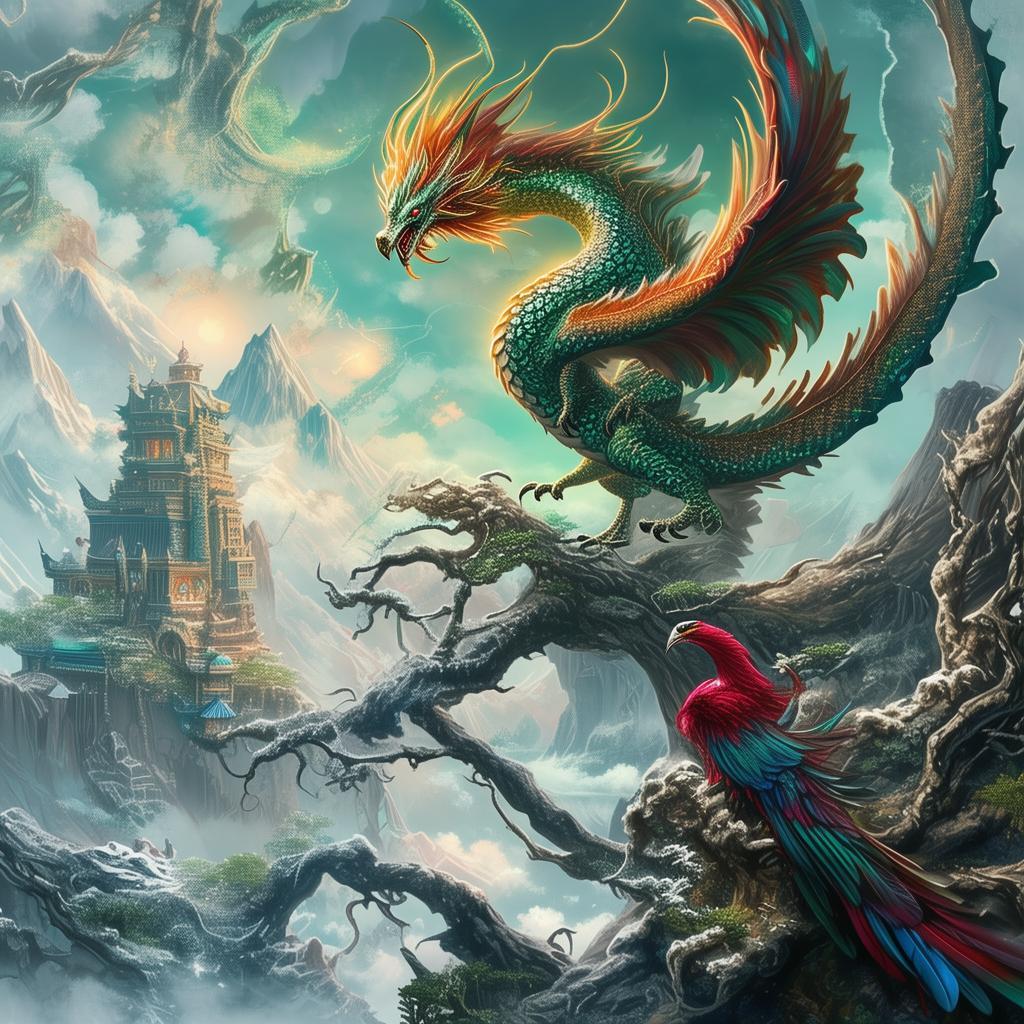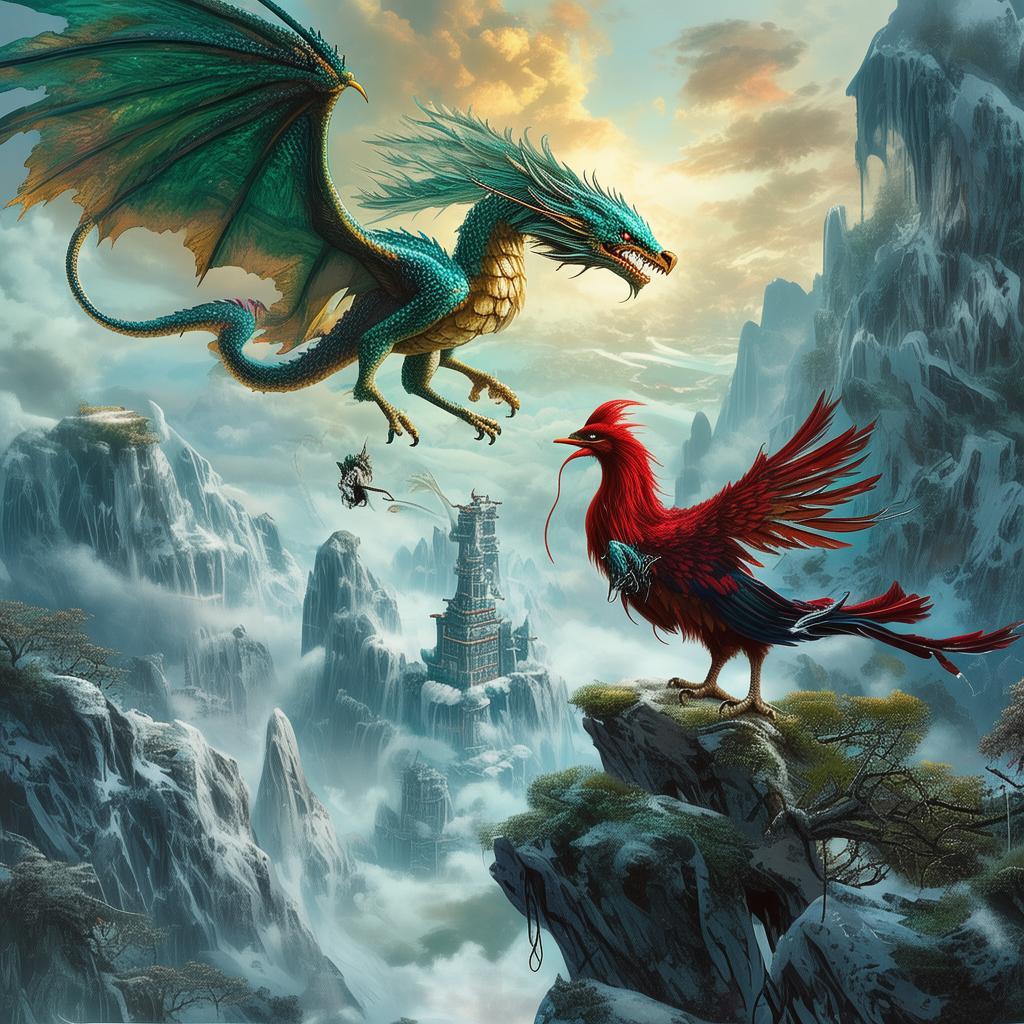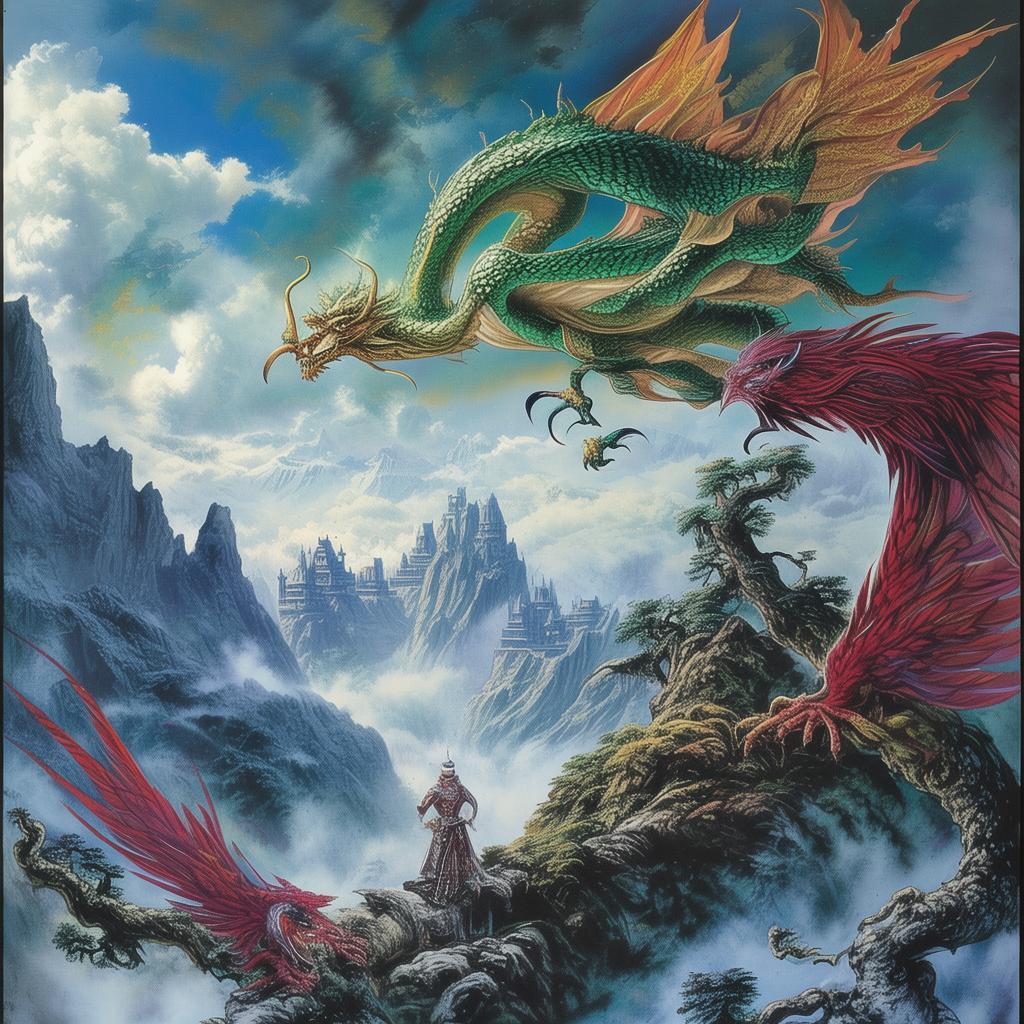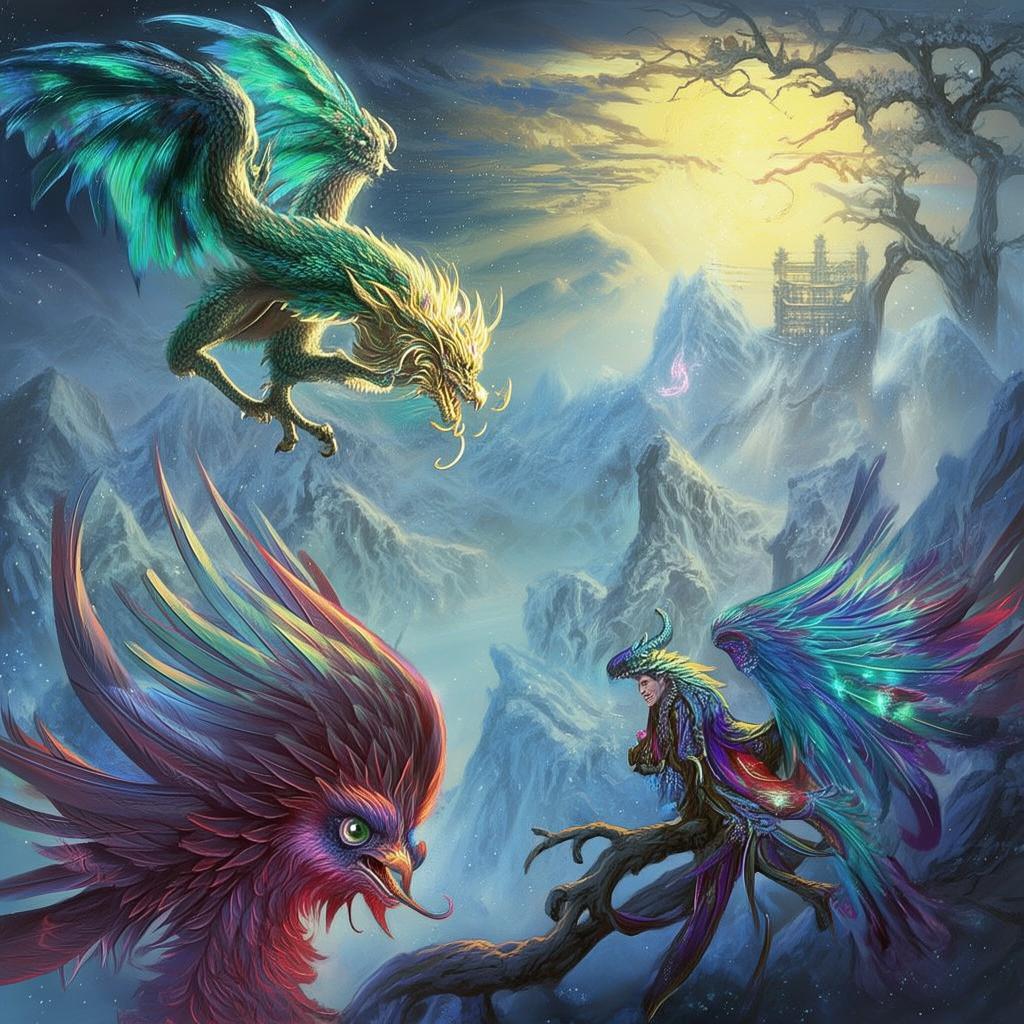The Demon's Lament: A Shan Hai Jing Quest
In the shadowed realms beyond the veil of the mortal world, there lay a river known only to the ancient and the wise—the River of the Ancestors. It wound its way through the landscapes of the Shan Hai Jing, a place where the mundane and the mystical intertwined. In the heart of this otherworldly river, there lived a demon named Apsara, bound by the ancient curse of the River itself.
Apsara had once been a human, a scholar named Jing, whose love for the River's mysteries led him to a forbidden place. The River, with its ancient power, took him, and in its depths, transformed him into a creature of shadows and whispers. Now, as a demon, he was bound to serve the River, to guard its secrets, and to protect its sacred waters. Yet, in the heart of Apsara, there remained a flicker of the human Jing, yearning for understanding and redemption.
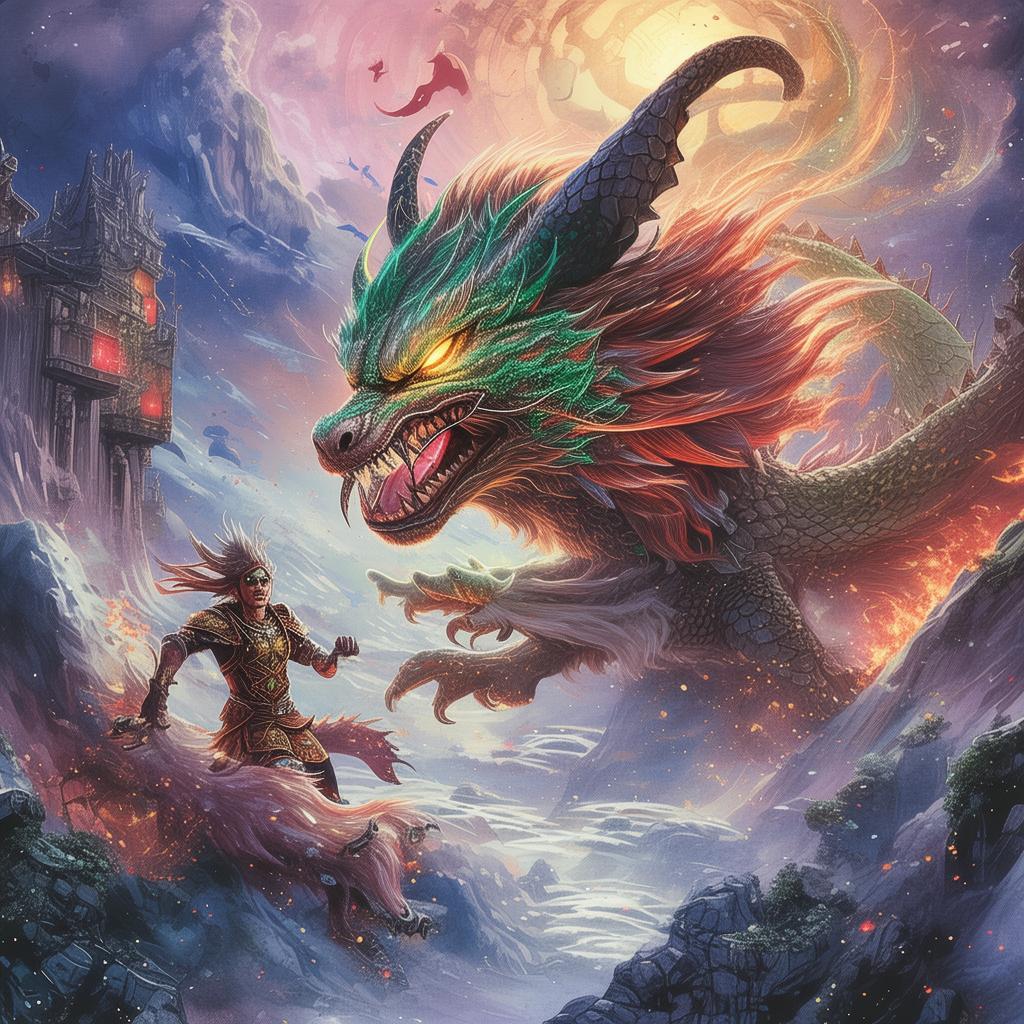
One night, as the stars wept their light upon the River's surface, Apsara felt a tremor in the water. It was a premonition, an omen that something was amiss in the balance of the River's power. Apsara's journey began with the quest to uncover the source of this disturbance.
The River's path was fraught with peril. It twisted through the realm of the Mountain of the Yellow Emperor, where the winds spoke in riddles, and the stones whispered of ancient battles. Apsara faced creatures of stone, whose hearts were as hard as the mountain from which they were born, and serpents that slithered with the grace of the earth's own veins.
As Apsara traveled, he encountered a group of ancient travelers, the questors of the River, who were themselves on a mission to restore the River's purity. Among them was a sage named Laozi, who had once been a mortal man but now walked the earth with the wisdom of the ages. Laozi saw the demon's sorrowful eyes and felt a kinship, a shared sorrow of lost origins.
The journey took them to the City of the Moon, where the moonlight was so pure that it could heal the deepest wounds. Apsara discovered that the source of the River's turmoil was a demon, an ancient being who had been trapped in the River by its own misdeeds. The demon, named Zephyr, had once been a guardian of the sky, whose pride had led him to a tragic end.
In the heart of the City of the Moon, Apsara and the questors confronted Zephyr. Apsara, bound by his own curse, found himself torn between his ancient duty and his human heart. Zephyr, too, was a creature of sorrow, trapped by his own hubris. In the heat of battle, Apsara felt the power of the River surge within him, a power he had never known.
The battle was fierce, and the River's waters roared as if the very heavens were fighting. But it was not the strength of arms that would decide the fate of the River. It was the strength of understanding and the willingness to let go of the past. In the end, it was Laozi who offered a path to salvation, a way to break the cycle of curse and suffering.
With Laozi's guidance, Apsara learned to harness the River's power for good, not as a tool of destruction but as a force of creation and healing. The demon's lament was not one of despair but of newfound purpose. He would be the bridge between the River and the mortal world, a guardian of the balance that sustained both realms.
The River of the Ancestors flowed on, and with it, the legend of Apsara. The demon who once walked the earth as a mortal man, transformed into a creature of shadow and power, had found his place in the grand tapestry of the Shan Hai Jing. His story, a testament to the power of redemption and the enduring spirit of those bound by the River's ancient ways, would be told for generations to come.
In the end, as the River wound its way back to the mortal world, Apsara stood upon the bank, gazing into the waters. He knew that his journey was far from over, but with each step, he grew stronger, and with each breath, he felt the heartbeat of the River within him. The demon's lament had given way to a new song, one of hope and of a future yet to be written.
✨ Original Statement ✨
All articles published on this website (including but not limited to text, images, videos, and other content) are original or authorized for reposting and are protected by relevant laws. Without the explicit written permission of this website, no individual or organization may copy, modify, repost, or use the content for commercial purposes.
If you need to quote or cooperate, please contact this site for authorization. We reserve the right to pursue legal responsibility for any unauthorized use.
Hereby declared.
